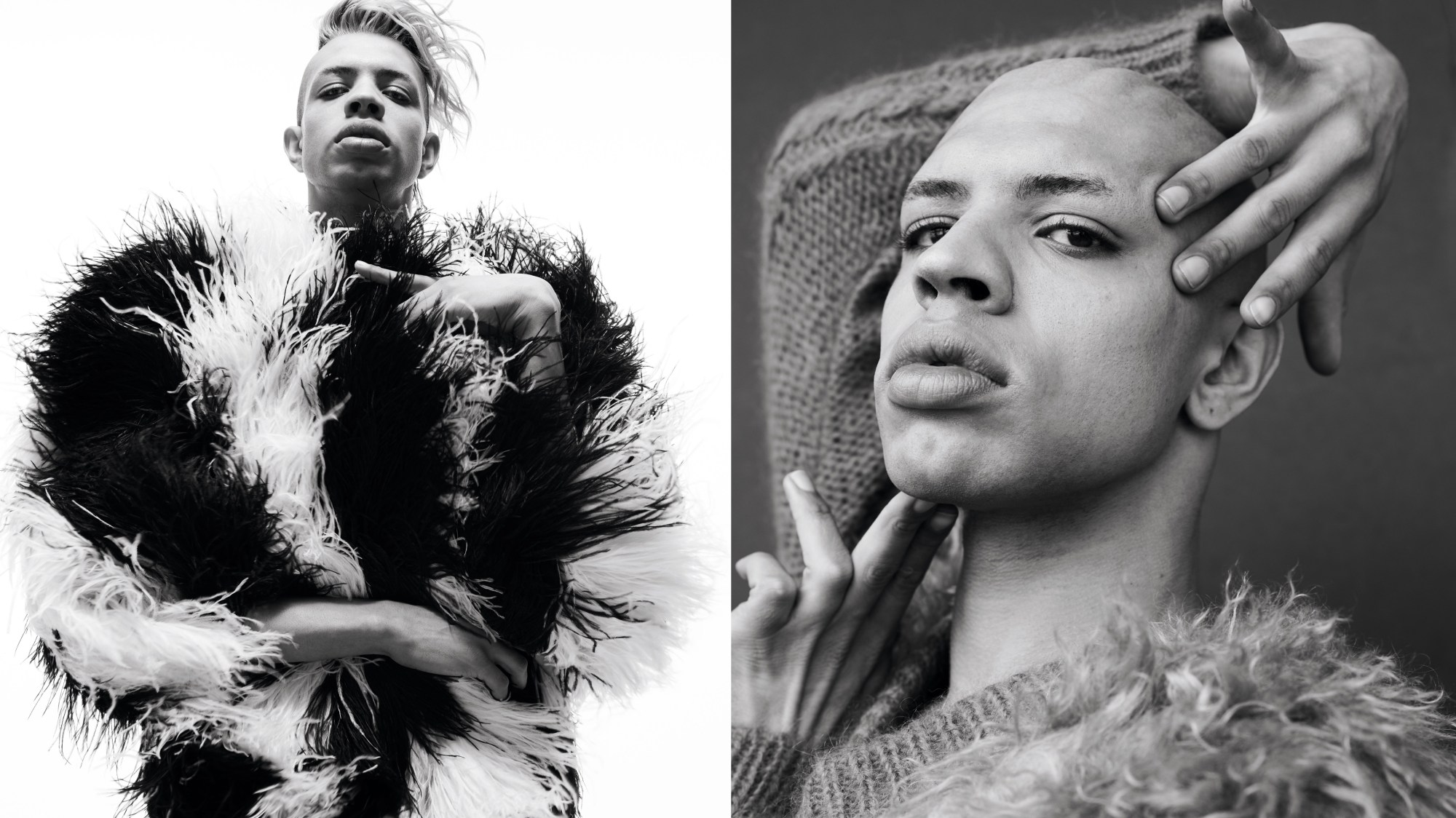This story originally appeared in i-D’s The Post Truth Truth Issue, no. 357, Autumn 2019. Order your copy here.
Yvie Oddly is a hard person to pin down. When we arrange to speak, she’s hopping from one new place to another every day as she embarks on a whirlwind tour of North America with the cast of RuPaul’s Drag Race Season 11. When we finally manage to catch up, she’s just touched down in Philadelphia, entering the last leg of this most fabulous (and gruelling) travelling stage show. “I don’t even know where home is right now,” she laughs when I ask what she’s up to that day, a trademark guffaw that launched a thousand memes and won her legions of fans on her season of Drag Race.
Since winning, Yvie’s life has been transformed. Now she’s (literally and figuratively) a million miles from her hometown bar in Denver, where she was both the manager and the in house talent, honing the drag skills that propelled her to fame. “In the last year I started taking steps to focus on my drag more,” she explains of her pre- Drag Race life. “I told myself that if I didn’t make it this year that I was gonna have to do something drastic anyway. I had already started trying to turn drag into a full time job and thanks to RuPaul I now have that opportunity.”
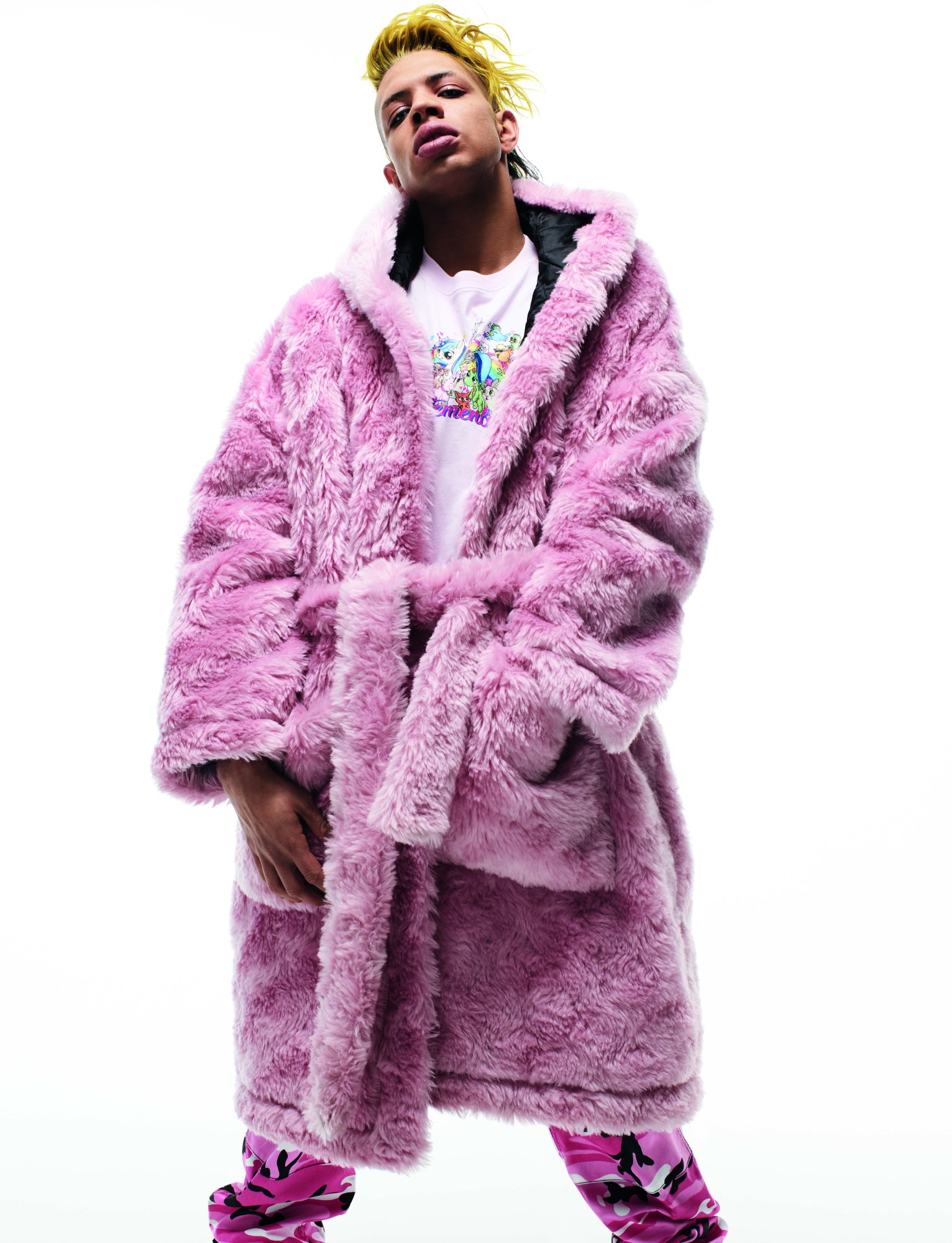
RuPaul might have given Yvie the platform to win over the world, but it was her talent that sealed the deal. From the moment she entered the Season 11 workroom in python-esque face paint and an emerald evening gown, accompanied by a feather boa tied to a remote control car, she stood out. Among the pageant queens and comedy acts, Yvie refused to be defined by one aesthetic or one style of drag. For the final performance that won her the crown, the 25-year-old shunned the typical high energy stunts and outfit reveals that have begun to characterise lip-syncs, instead putting on a powerful performance in a structured ballgown and intricate mirrored headdress. As she spun maniacally on stage at LA’s Orpheum Theatre to Lady Gaga’s Edge of Glory, Yvie’s painted face, complete with blood stained eyes, was reflected in each of the mirrors, mesmerising the audience. Before the song had even ended it was clear who had won; the triumphant oddball of the season.
With opportunity comes responsibility. In the past ten years RuPaul’s Drag Race has gone from being a niche reality show to an international juggernaut. Since switching networks from Logo TV to the larger VH1, the show has spawned two international spin offs ( Drag Race Thailand, and the upcoming Drag Race UK), as well as a bi-coastal drag convention. Along with the tour Yvie’s currently coming to the end of, there are also international ensemble tours organised by production company World of Wonder, and an individual queen’s touring schedule can sell out across the world. Drag Race alumni have gone on to be YouTube impresarios (Trixie Mattel and Katya), darlings of haute couture (Miss Fame and Violet Chachki) and even film stars (Shangela). When the stakes are that high, and the show you’re competing on is being watched by millions around the world, the backlash for making one wrong move can be fierce. The fervour among Drag Race fans is particularly notable, both in size and volatility. One subreddit dedicated to the show has over 270,000 members. Some fans have also been known to direct abuse and racist slurs on social media at queens they don’t like.
But Yvie is measured about the pressure of a sudden huge social media following (her Instagram alone has over 820,000 followers now), perhaps because, like most of us, she grew up online. “I mean, there’s a positive and the negative side to everything,” Yvie says. “So when the fans love you they love and support you extremely, but when they hate you then they’ll hate what you do extremely. You do have to be careful with how you’re expressing your opinions. However, I think just being a real and honest and down to earth human being will make you successful regardless. There will always be people who disagree with what you’re saying or doing or wearing. But if you come from a humble place and try to understand the other person’s side, then that helps. Personally I don’t worry much about what’s going to happen on social media.”
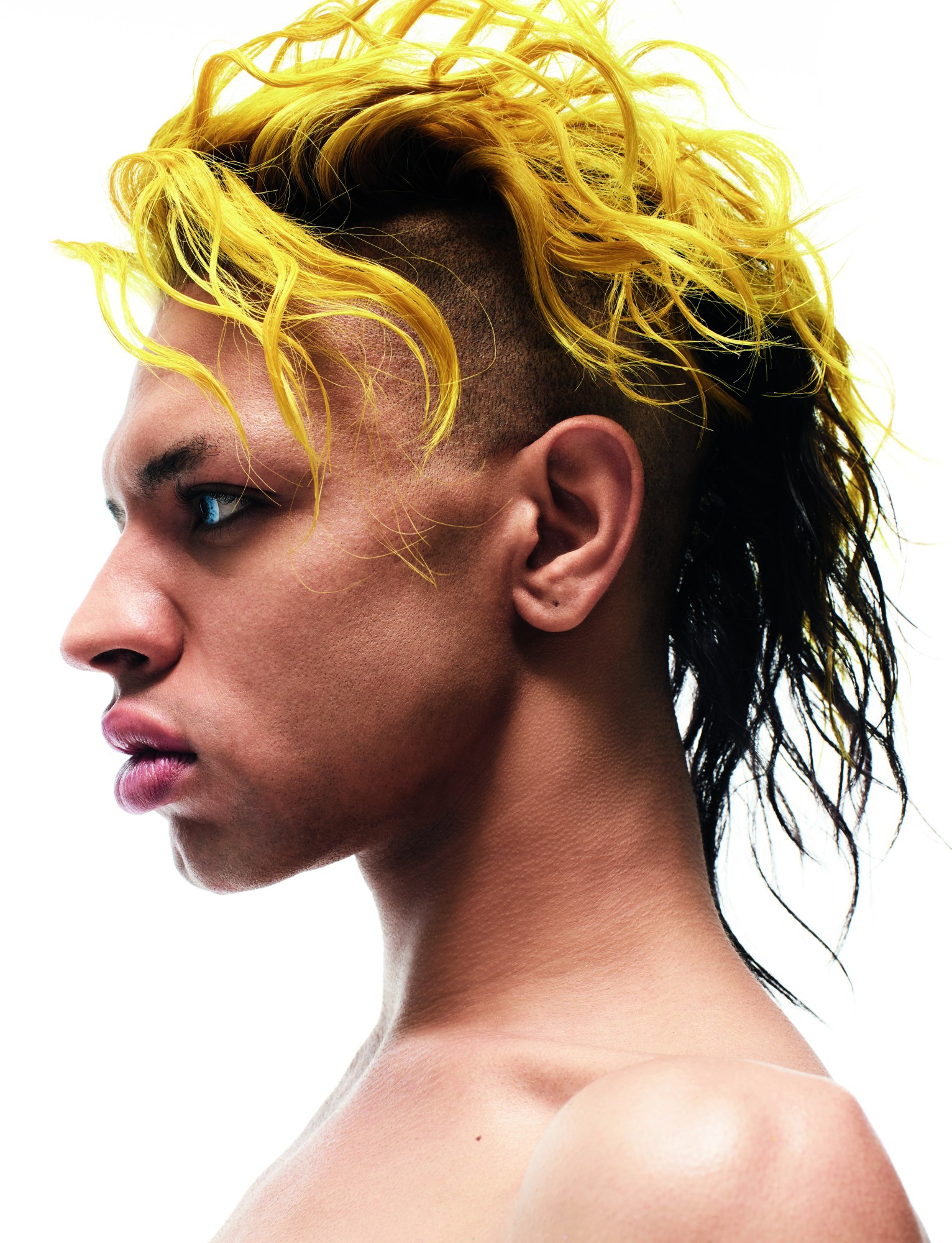
As Drag Race has become more popular the show’s social media fanbase has exploded. “Drag’s mainstream perception has definitely changed in recent years, especially because the biggest spotlight on it comes from a reality TV competition. Everybody gets to play the part of a judge now,” says Yvie, who’s quick to point out the double edged sword of this co-option. “There’s a huge mainstream fanbase who have strong opinions. That can sometimes be toxic, yes, but it also illustrates how far we’ve come as a culture that I can be a queer man out here celebrated for doing queer art.
“I think Drag Race helped open the eyes of the mainstream to the fact that queer people, specifically queer people of colour, have made such a huge contribution to pop culture. We’ve never been given credit for the beautiful art that we’ve put out in the world. But now we’re having a renaissance. People are finding out who birthed a lot of these beautiful things that white cis people have been taking credit for forever.”
Perhaps it is because the show has become so popular so quickly, the criticisms have also begun to roll in. In recent seasons, fans have attacked the show, and its creator, the eponymous RuPaul, for not being forward thinking enough in allowing transgender and gender non-binary contestants to tell their story and compete. While the show has undoubtedly spread awareness around difficult topics, airing conversations on HIV, transphobia, homophobia and conversion therapy, in the ten year history of Drag Race, only two contestants (season nine’s Peppermint, season five’s Monica Beverly Hillz, and if you count All Stars, Gia Gunn) have competed as openly trans women. “In the kindest of ways, the modernisation of Drag Race is never going to take place fast enough to make the kids happy,” says Yvie, who is known as Jovan Bridges out of drag. “The world around us is such a rapidly evolving place. 10 years ago, most people never would have understood what a non-binary person is. So honestly I think the show is doing a great job of trying to keep up. But as always, there needs to be better representation, or more diverse, clear expression.
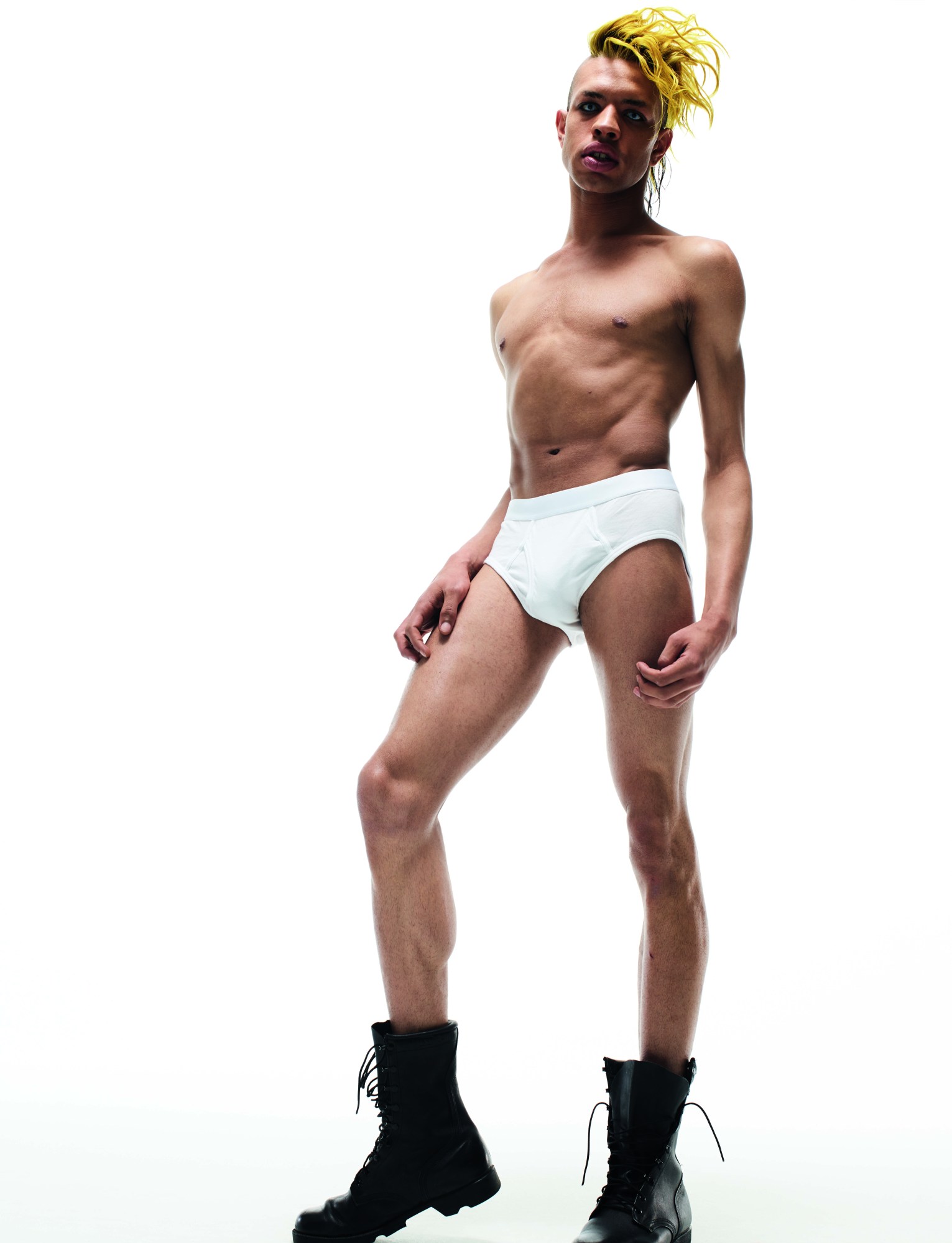
“I think people also have to remember that we are being seen on a bigger scale than ever. We’re being introduced to people who never had any idea that any of this culture existed. You can’t expect a show that’s supposed to be acting as a medium between these two worlds to be where the most radical queer parts of our culture are.”
But it’s queens like Yvie Oddly, unapologetically queer, black and defiantly odd, who are leading Drag Race into more radical territory by showing that drag doesn’t have to fit into one particular aesthetic or mould. “I mean, I’m not out here to prove a point for anyone else,” Yvie says. It’s perhaps the fact that she’s not here to prove a point, that she’s authentically herself and not for any cynical reasons, that’s why she’s resonated with so many people. Her looks, her jokes, her attitude are an expression of her own identity. They are not made for TV, which is precisely why they made such good TV. “Drag is just a true expression of the person you are underneath all the make-up. It’s a giant joke, playing with identity. I want to push the limits of what’s acceptable.
“I’ve always been a bit off kilter. That’s just how I prefer to tackle everyday life. In drag it’s just more extreme.”
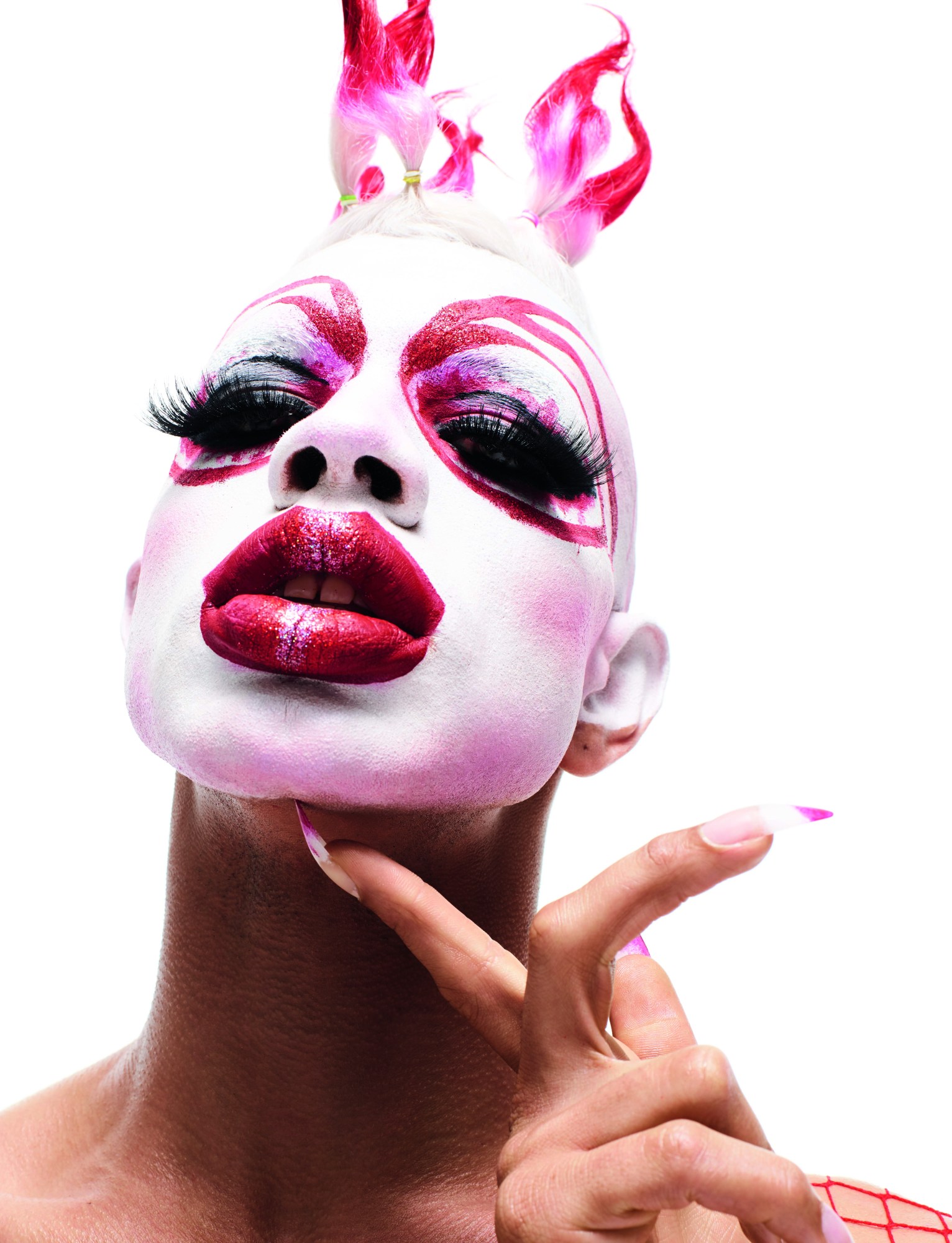
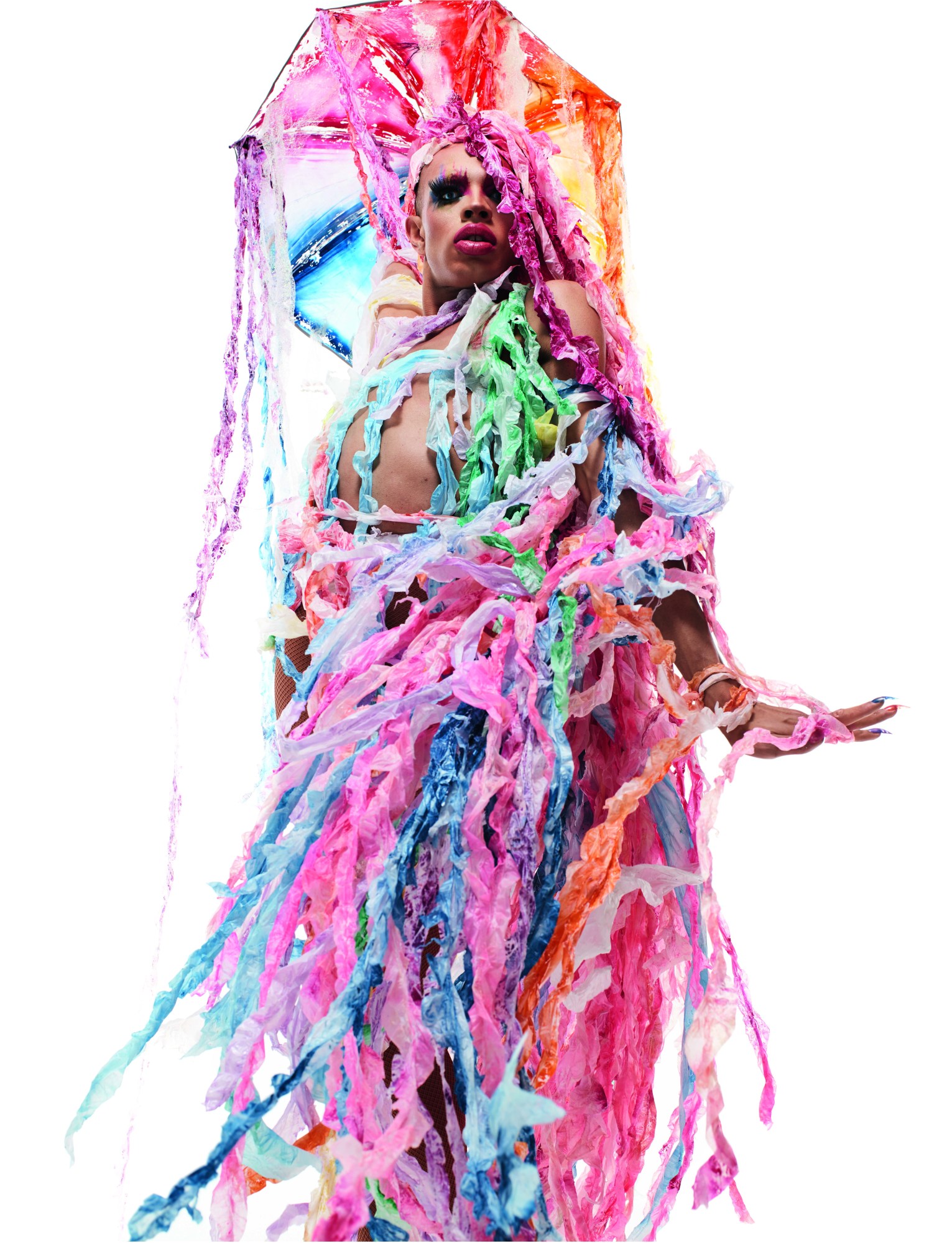
Credits
Photography Amy Troost.
Styling Alastair McKimm.
Hair Shay Ashual at Art Partner.
Make-up Kanako Takase at Streeters.
Nail technician Tracylee Percival at Bri Winters using Dior Vernis.
Photography assistance Darren Hall and Karen Goss.
Digital technician Alonzo Maciel.
Styling assistance Madison Matusich.
Make-up assistance Kuma.
Casting director Samuel Ellis Scheinman for DMCASTING.
